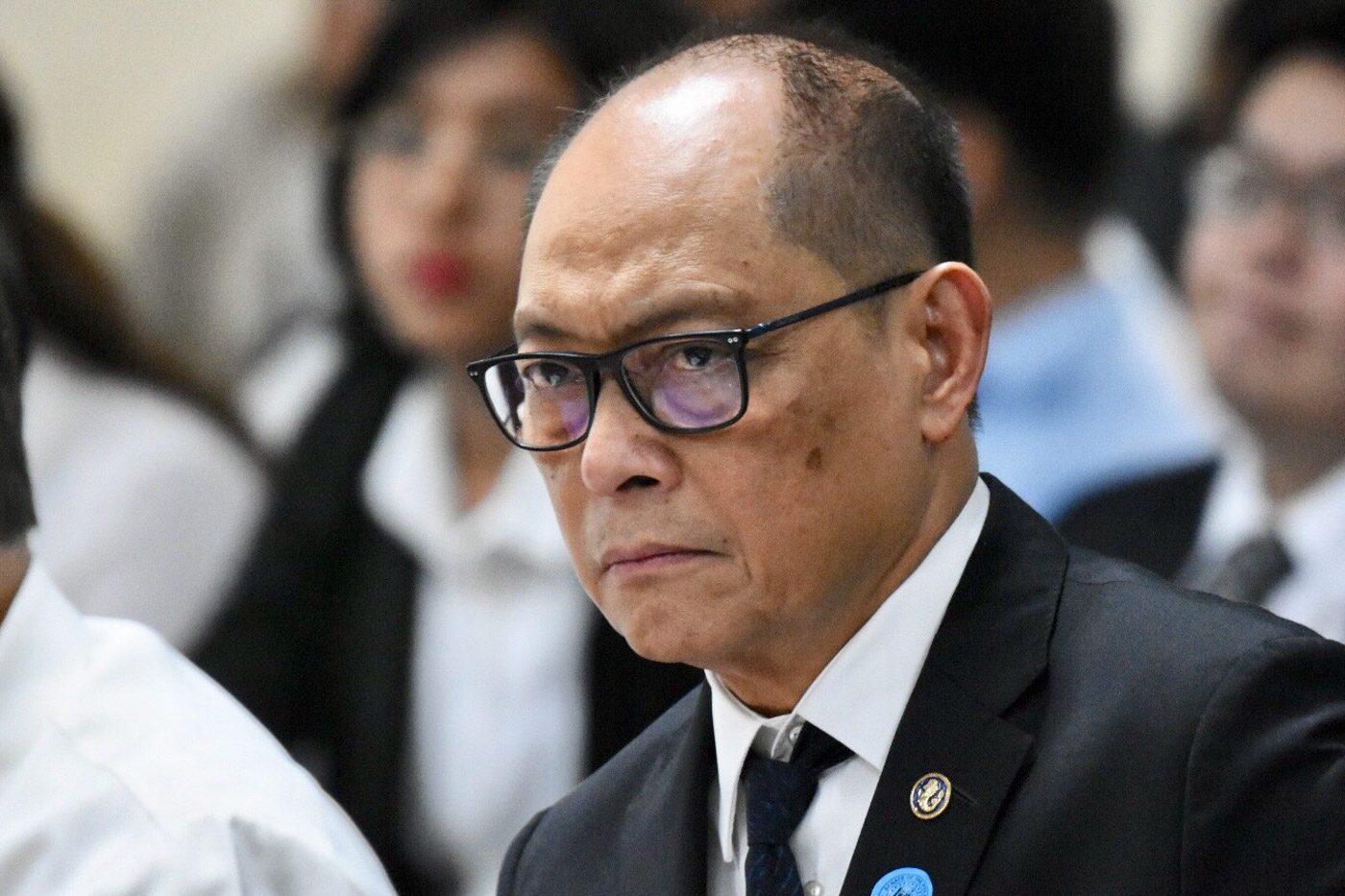SUMMARY
This is AI generated summarization, which may have errors. For context, always refer to the full article.

MANILA, Philippines (UPDATED) – Should Congress reject the proposed 2019 national budget, Department of Budget and Management (DBM) Secretary Benjamin Diokno said they are prepared to reenact this year’s fiscal program.
In a media interview on Sunday, August 12, Diokno said they are studying all other options, but maintained that the Congress “cannot return” the budget.
“We are studying all our options, including a reenacted 2018 budget. We are ready,” Diokno told reporters on the sidelines of the Build, Build, Build job fair on Sunday.
“If the President has submitted the budget as provided by the Constitution. The role of Congress now is to pass it or reject it or not act on it. But they don’t have the right to return the budget,” the budget chief added.
A reenacted budget means government expenditures for 2019 will be funded by the same amount and within the same allocations as those provided in the 2018 approved budget.
The House committee on appropriations suspended all budget hearings until the DBM has “reverted the proposed 2019 cash-based budget to an obligation-based one.” On Monday afternoon, the Senate also announced it would suspend budget deliberations.
But Diokno said it would be impossible because President Rodrigo Duterte had already submitted the proposal after his 3rd State of the Nation Address.
Intentions vs accomplishments
Under a cash-based system, agencies have to spend their funds and implement their projects within the fiscal year.
Implementing government agencies are obliged to complete their project contracts by the end of 2019 regardless of obstacles, like natural calamities, which may cause delays. Projects whose completion a government agency cannot guarantee will be removed from its proposed budget.
Supposedly the first cash-based budget of the government, the 2019 NEP amounts to P3.757 trillion, representing 19.3% of the projected gross domestic product (GDP) for 2019.
This amount is “slightly lower” compared to the P3.767-trillion 2018 budget.
Diokno said that the shift to a cash-based budget is still the “best practice” as compared to the previous practice of a multi-year obligation-based budget that allows funds to be used in several years.
“Obligations are intentions but there are no projects completed. You have until, say, next year to obligate. That means you will only have to look for a contractor but no projects are completed right away,” Diokno said.
“In cash-based budgeting, your school buildings and farm-to-market roads are built within the year. Given the size of our budget because of Build, Build, Build, we have to change our budget [systems] otherwise we won’t be able to see finished projects,” he added.
The shift to cash-based budgeting is seen to reduce underspending among agencies.
Diokno has advocated for the passage of House Bill No. 7302 or the Budget Reform Bill which institutionalizes cash-based budgeting system.
HB 7032 was approved on third and final reading in March, but a movement within the House wants it recalled after being “confused with the system.”
Congressmen seek audience with Duterte
House Majority Leader Roland Andaya gave the assurance lawmakers are not seeking to reenact this year’s fiscal program in 2019.
“There will be no reenacted budget scenario. We are not moving towards that. We will avoid having a reenacted budget like leptospirosis,” said Andaya.
“What we are doing now is merely trying to understand what DBM (Department of Budget and Management) has submitted to us, what the economic managers have submitted to us,” added Andaya, who used to be the budget chief during the presidency of Speaker Gloria Macapagal Arroyo.
According to Andaya, even Cabinet members themselves are confused on how to properly implement the cash-based budgeting system.
“When we ask questions, the usual answer is DBM made the cut. They do not know how to answer the question. How it will be implemented or how cash-budgeting would affect their operations, still they cannot give a clear answer. Where is the transparency there? Where is the let me say predictability of the budget once cash budgeting is given the go signal to proceed?” said Andaya.
He said lawmakers plan to meet with Duterte and other Cabinet members during Congress’ two-week break this month to address the concerns over the cash-based budgeting system. – with a report from Mara Cepeda/Rappler.com
Add a comment
How does this make you feel?
There are no comments yet. Add your comment to start the conversation.